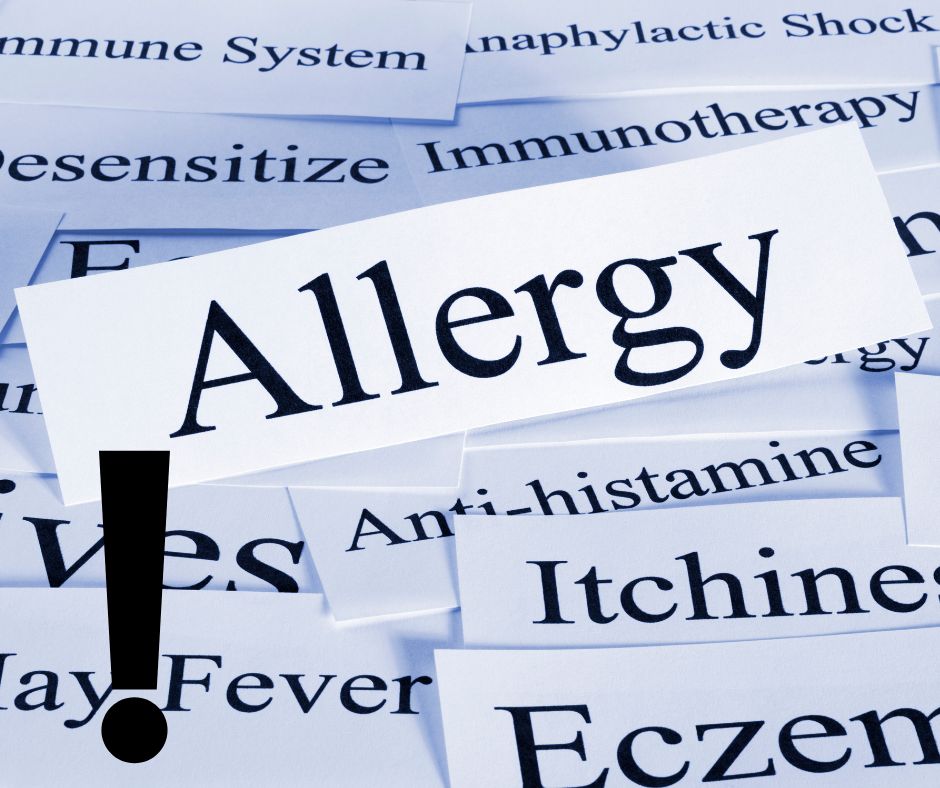Occupational Diseases caused by Workplace Allergens
For many, exposure to even the smallest trace of an allergen can trigger symptoms.
Respiratory diseases attributed to allergens may include occupational asthma, rhinitis and conjunctivitis. Potential skin diseases include contact dermatitis and urticaria. In severe cases, anaphylaxis may occur (a life-threatening allergic reaction).
What industries are affected?
Workers across all industries are affected by allergens. Some examples include the following. In the construction industry, wood dust and isocyanates (paints) are prominent issues which may affect the lungs. Allergic contact dermatitis may present itself due to exposure to chromium in cement. Allergic contact dermatitis may also affect motor mechanics due to their exposure to benzene, as well as healthcare workers due to their exposure to latex in gloves. Bakers may experience nose irritation due to exposure to specific allergens such as wheat flour. Miners may be affected by non-specific irritants such as coal dust. Among occupational diseases affecting the lungs, hypersensitivity pneumonitis may affect farmers exposed to mouldy hay, miners exposed to silica and lab workers exposed to animals. Hairdressers are often affected by hair dyes and perfumes in styling products. Chemicals in cleaning substances affect workers in all industries, particularly cleaners.
Employers have a legal responsibility to provide a safe working environment, and that includes protecting employees from allergens. Health and safety regulations require employers to minimise risks “as far as reasonably practicable”.
Are allergies a disability?
There is mixed case law here. In one case, the Tribunal found that diet-controlled conditions do not have a substantial effect on the ability of an individual to carry out day-to-day activities (one of the tests for a disability) as there are reasonable avoidance strategies available. However, in another case, it was determined that a chef with a severe nut allergy was disabled.
Allergies are not specifically excluded from the definition of disability, and in practice whether an allergy sufferer is classed as disabled will depend on the severity of their allergy and the ease by which it can be managed.
For example, if an individual has an allergy to atmospheric allergens and is unable to work in an office environment without suffering an allergic reaction, the allergy may be found to have a substantial adverse effect on day-to-day work activities.

Legal Requirements and Employer Guidelines
Legal requirements will vary by location. Consult local regulations for specific details. In the UK, some allergy-related incidents will need to be reported under Reporting of Injuries, Diseases and Dangerous Occurrence Regulations 2003 (RIDDOR).
If an allergy qualifies as a disability under equality laws, employers must make reasonable adjustments. This might include the provision of air purifiers or relocating the employee in question.
Employees must carry out a risk assessment to identify potential allergens and assess exposure risks for employees. It is crucial to spread awareness through training on common allergens, allergic reactions, and how to prevent them.
Maintain a schedule for regular cleaning to reduce allergens such as dust and mites. Ensure sufficient first aid supplies are available and staff are trained to recognise allergic reactions.
Develop a policy on food consumption in shared spaces, considering restrictions in designated areas. Separate storage of food and utensils should be encouraged to minimise cross-contamination. Staff should ensure clear labelling of personal food items brought to work.
Employees should be encouraged to disclose allergies and discuss potential risks with their supervisor. They should also be encouraged to report any work practices they consider to be unsafe with their supervisor, senior management or even the health authorities if necessary. A workplace culture of respect and understanding towards employees with allergies should be maintained.
Confidentiality
When gathering information regarding prospective employees’ medical conditions, especially prior to offering a job, take care to avoid potential discrimination. Employers may need to make some enquiries to deal with the issue of reasonable adjustments.
Maintaining confidentiality about employees’ medical conditions is a must, for example, when seeking to ensure colleagues are trained to deal with the needs of allergy sufferers. Employers should speak to the employee suffering from the allergy to get their input on the support they may need.
If other employees breach express instructions related to protecting colleagues with allergies (e.g. no consumption of nuts in the office), disciplinary action may need to be considered.
Safeguarding employees with allergies is not just a courtesy, it’s crucial.









